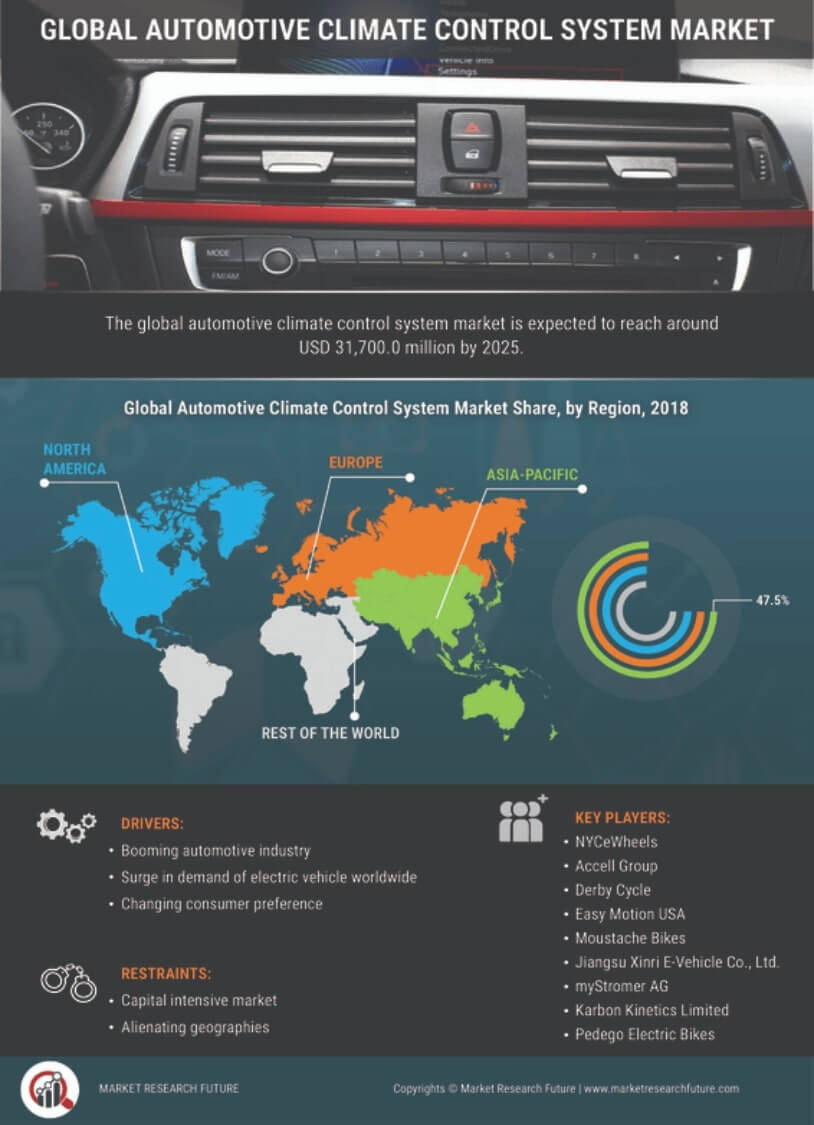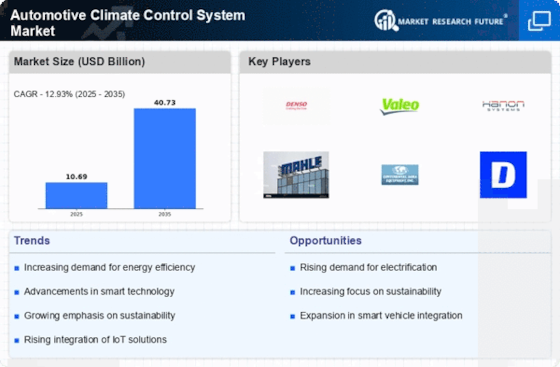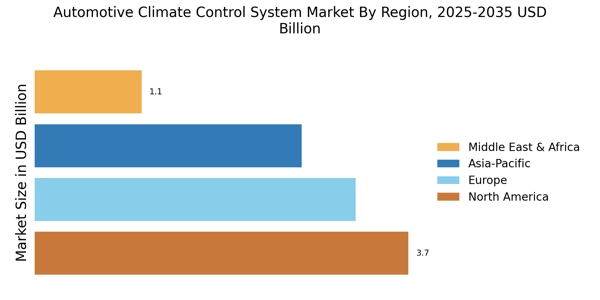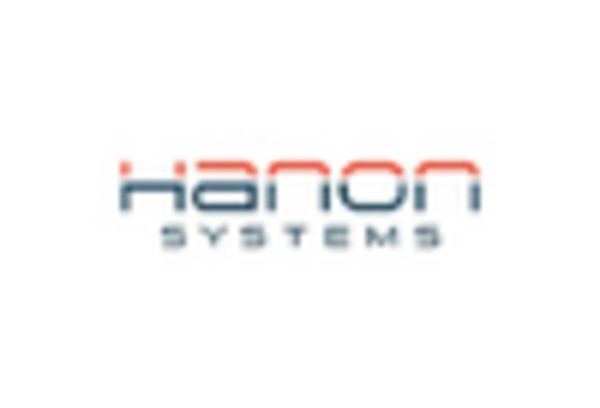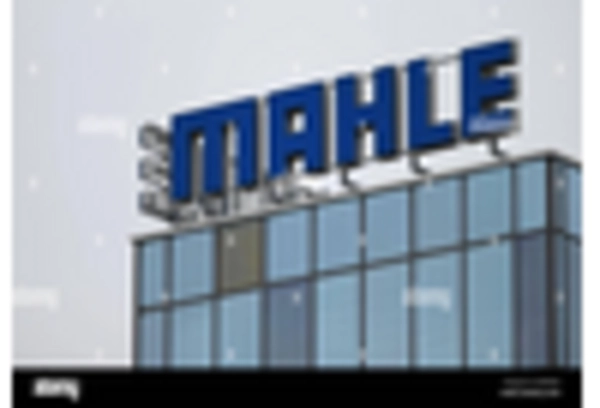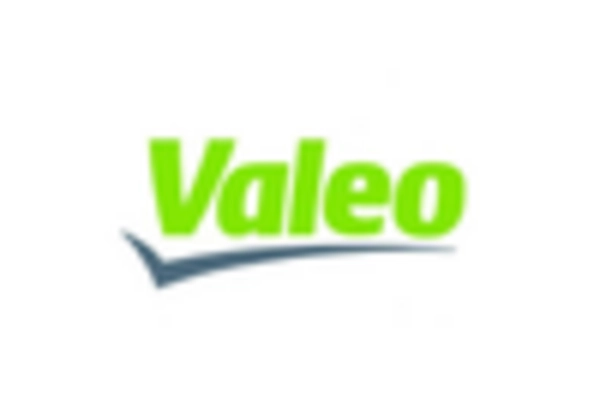Rising Consumer Demand for Comfort
The Automotive Climate Control Market System Market is experiencing a notable surge in consumer demand for enhanced comfort features within vehicles. As consumers increasingly prioritize comfort during their driving experience, automakers are compelled to integrate advanced climate control systems. This trend is reflected in the growing sales of vehicles equipped with sophisticated climate control technologies, which are projected to reach a market value of approximately USD 30 billion by 2026. The emphasis on passenger comfort is driving manufacturers to innovate and improve their climate control offerings, ensuring that they meet the evolving expectations of consumers. Consequently, this driver is pivotal in shaping the future landscape of the Automotive Climate Control Market System Market.
Growth of Electric and Hybrid Vehicles
The rise of electric and hybrid vehicles is a significant driver for the Automotive Climate Control Market System Market. As these vehicles become more prevalent, there is a growing need for efficient climate control systems that can operate effectively without compromising battery life. The unique requirements of electric vehicles necessitate the development of advanced climate control technologies that are energy-efficient and capable of maintaining optimal cabin temperatures. Market analysts predict that the share of electric and hybrid vehicles in the automotive market will reach 30% by 2030, thereby creating substantial opportunities for innovation within the Automotive Climate Control Market System Market.
Regulatory Push for Emission Reductions
The Automotive Climate Control Market System Market is being shaped by stringent regulations aimed at reducing vehicle emissions. Governments worldwide are implementing policies that mandate lower emissions from vehicles, which in turn influences the design and functionality of climate control systems. For instance, the introduction of refrigerants with lower global warming potential is becoming a standard requirement. This regulatory push is expected to drive innovation in the Automotive Climate Control Market System Market, as manufacturers seek to comply with these regulations while maintaining performance and comfort. The market is projected to adapt rapidly, with an anticipated increase in the adoption of eco-friendly climate control technologies.
Increasing Focus on Vehicle Safety Features
The Automotive Climate Control Market System Market is also influenced by the increasing focus on vehicle safety features. Modern climate control systems are being designed not only for comfort but also to enhance safety by improving visibility and reducing driver distraction. For example, systems that automatically adjust temperature and humidity levels can prevent fogging on windows, thereby enhancing visibility. This focus on safety is likely to drive the adoption of advanced climate control technologies, as manufacturers strive to meet consumer expectations for safer driving environments. As a result, this driver is expected to play a crucial role in the evolution of the Automotive Climate Control Market System Market.
Technological Advancements in Climate Control
Technological advancements are significantly influencing the Automotive Climate Control Market System Market. Innovations such as dual-zone and tri-zone climate control systems are becoming increasingly prevalent, allowing for personalized temperature settings for different areas of the vehicle. Furthermore, the integration of artificial intelligence and machine learning into climate control systems is enhancing their efficiency and responsiveness. According to recent estimates, the market for smart climate control systems is expected to grow at a compound annual growth rate of 8% over the next five years. These advancements not only improve user experience but also contribute to energy efficiency, making them a crucial driver in the Automotive Climate Control Market System Market.
